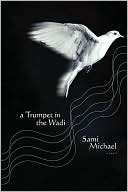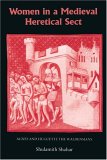Author: Shlomo Sand
Verso Books, 2009
ISBN: 1844674223

This is a somewhat
paradoxical book: undoubtedly important –
yet it contains little that is new. Written by a
professional academic historian, it is about
history and historiography – but not in his
established field of expertise. Shlomo Sand is
professor at Tel-Aviv University, specializing in
modern European, particularly French, history. He
is not even in the ‘right’ academic
department to concern himself with the subject of
this book: in Israeli universities, Jewish History
and ‘General’(!) History are taught in
two quite separate departments. In this book, Sand
sets out to debunk widespread Zionist myths about
the origin of the Jews, and who they are. Zionism
modelled itself on 19th century eastern- and
central-European nationalisms: it regarded itself
as the nationalism of the Jews. The ideological
project of any nationalism is to invent, as it
were, the nation for which it claims to speak: to
provide it with a narrative of common origin,
homeland and destiny. This is then used to claim
possession of, and sovereignty over, the homeland.
[…]
Shlomo Sand’s book is a highly readable account
– more readable in the excellent English
translation by the late Yael Lotan than in the original
inelegant Hebrew of the author – of the
historical facts outlined above and of the attempts of
Zionist historiography to wriggle its way around or out
of them.
(Moshé Machover, Race & Class, January 2011)
Author: Sami Michael
Simon & Schuster Adult Publishing Group
ISBN-13: 9780743261487

Set in Haifa just before the
Israeli invasion of Lebanon in 1982, this
spirited, bittersweet novel captures the
Arab-Israeli conflict in microcosm. The seaside
city is home to a family of Christian Arabs:
irascible Elias, the patriarch; his busy
daughter-in-law, Umm-Huda; and her fatherless
daughters, the beautiful Mary and her older,
deplorably still unwed sister Huda. Also living in
their crowded building in the wadi, or Arab
quarter, is newcomer Alex, short in stature but
well-muscled, a Russian-Jewish immigrant who plays
his trumpet soulfully in the building's rooftop
shed. His music, patience and remarkable physique
awaken the interest of reticent Huda, while Mary
rejects the advances of Zuhair, the son of their
shady Muslim landlord, for the security of
plodding Wahid, her Muslim cousin. A trip taken by
the two couples to the Red Sea resort of Eilat is
an uproarious highlight, and a visit by Huda and
Alex to a nursing home to see Alex's ailing but
tyrannical mother is a striking set-piece. The
translation is occasionally stiff, and Michael
tends toward over-explanation, but the novel deals
cleverly and humorously with complicated
relationships. Against the tragic backdrop of
current events, the willingness of Michael's
characters to ignore the strictures of individual
religious beliefs and to shun fanaticism, is
refreshing, though perhaps increasingly hard to
credit. (Aug.)
(Publishers Weekly)
More Reviews and Recommendations
Author: Dorit Rabinyan
Random House Trade Paperbacks
ISBN-10: 0375760032
ISBN-13: 978-0375760037

Rabinyan's second novel
(after the international bestseller Persian
Brides) maintains an expert balance between
lyricism and tough-mindedness. Like Isaac Babel in
his Odessa short stories, she knows that a
metaphor is not an ornament, but rather a probe
(or even a bullet) into the heart. For instance,
here is how we are introduced to a rich
businessman: "in those days he was squeezing money
and tears out of almost every nation in Africa. He
began his business career by importing hollow gold
jewelry, but by the time he met Sofia he had
already become a major purveyor of tear-gas." The
Sofia in question is one of the four Azizyan
daughters, the beauty of the family. Iran, the
mother of this brood, and Solly, their fisherman
father, are both Persian-speaking emigrants to
Israel. The story is given to us as a sort of
allegorical fresco it begins on the morning of
Sofia's sister Matti's 11th birthday and examines,
in separate insets, the weddings of the girls and
their parents' pasts, returning periodically to
Matti's birthday. Matti, poor girl, is half-mad,
imbued with the energy and craziness of her
stillborn twin brother, Moni. The other daughters
Lizzie and Marcelle aren't doing so well either.
Lizzie used to embarrass her mother by
masturbating in public. Marcelle falls hopelessly
in love at 13 with Yoel Hajjabi, finally marries
him and then falls out of love with him on the day
after her wedding. Matti, meanwhile, spends her
birthday cutting up the family album and hiding in
the backyard with the specter of her demon-lover
twin. Rabinyan is a surprising writer the reader's
casual expectation that her lyricism will become
vapidly sentimental is agreeably disappointed by
frequent instances of the coldest realism.
(Publishers Weekly)
Amazon.com • Barnes & Noble
Author: Daniella Carmi
Scholastic US
ISBN-10: 0439135044
ISBN-13: 978-0439135047

A Palestinian boy comes to
terms with his younger brother's death in this ...
moving novel originally published in Hebrew in
1994. In homage to the bravery of his brother
Fadi, who was killed by an Israeli soldier, Samir
shatters his kneebone in a daredevil bicycle feat.
Consequently, he must undergo a special operation
at the "Jews' hospital." Samir's fever plus the
sealing off of territories keeps the boy
hospitalized for several weeks in a ward with four
Israeli children, including Yonatan, a boy with a
hand in an "iron contraption" and a head in the
clouds. The author simultaneously and effectively
sketches the understated friendship that develops
between the pair ("Together we're two boys with
three legs and three hands," says Yonatan) and
uses flashbacks to reveal the details of Samir's
life in the occupied West Bank, including the
effect of his brother's death on his family. Some
readers may find the book's climax troubling:
Samir, while playing a computer game with Yonatan
in which he creates a new planet where "everything
is possible," comes to believe that Fadi died
because "he didn't have anything to carry on
with." However, the book's understated tone and
detailed character development prevent its message
from becoming obvious or heavyhanded. Ages 8-12.
(Publishers Weekly)
Amazon.com
Author: Shulamith Shahar
Boydell Press
EAN: 9780851158150
ISBN: 0851158153

Agnes and Huguette were two
Waldensian women who were interrogated by the
inquisitional court of Pamiers, in southern
France, in 1319 and subsequently burnt at the
stake for their heretical beliefs. Shahar uses the
records of their inquisition as a basis for an
examination of the Waldensian sect's attitude
towards its women members, and their role within
the sect, comparing their lives with women in the
Catholic church and in other sects. She finds that
in a persecuted voluntary group such as the
Waldensians, gender was largely immaterial,
subordinate to the fervent religious commitment of
the members; nor did the court of inquisition
distinguish between male and female, subjecting
heretics of either sex to the same horrible
punishment. This is the first book-length
treatment of women Waldensians, who have been
almost written out of studies of the sect, but are
here shown to have played a full role within it.
It throws light on women and gender in medieval
society as well as on one of the main heretical
movements in France in the early fourteenth
century.SHULAMITH SHAHAR is Professor Emeritus of
Medieval History, Tel Aviv University.
(Editorial review)
Nanowerk.com
Author: Gershon Shaked
Editor: Emily Miller Budick
Indiana University Press
ISBN-10: 0253337119
ISBN-13: 978-0253337115
Modern Hebrew Fiction
(Jewish Literature and Culture) is an
excellent overview of the development of Hebrew
literature, from the very early days of the
language's revival as a spoken and written tongue
in Europe, to its "normalization" as the
literature Jews in their own state. Perhaps this
books greatest asset is its thesis of how Hebrew
fiction fluctuated between supporting the Zionist
meta-script and rebelling against it. Hebrew
fiction in the State of Israel could act as an
agent to foster group identity and patriotic
cohesion and also to illustrate alienation and
subversion of the Zionist vision. The book, if
anything, tends to be a bit reductive. There are
too many hasty judgments in one or two paragraphs
of an entire writer's work. But overall, this does
not mar the book's usefulness. It is a fine
outline of the development of a language and its
literature.
(Eric Maroney)
Amazon.com
Author: Dorit Rabinyan
Hudson, MA, U.S.A.
ISBN: 0807614610
Winner of the Yitzhak Vinner
Prize (1996)
Two Jewish girls are the
center of this first novel, which describes in
almost magical fashion the inhabitants of a small
Persian village at the beginning of the century.
Fifteen-year-old Flora Ratoryan is pregnant, and
her cloth-merchant husband has abandoned her. Her
11-year-old cousin, Nasie, consoles her while
wishing for her own marriage to Flora's brother,
Moussa, to whom she has been betrothed since
birth. The story only covers a few days in the
lives of these girls, but the background of the
inhabitants of this almond tree alley in the
fictional village of Omerijan rounds out the
picture. Vivid descriptions of cruelty (Miriam
Hanoun, Flora's mother, kills cats; Moussa beats
Flora unmercifully because he can't stand her
laughter) and sensuality mix with the descriptions
of everyday life. This may be too heady a mixture
for some readers, but the storytelling is superb.?
(Library Journal)
Amazon.com •
Barnes & Noble












